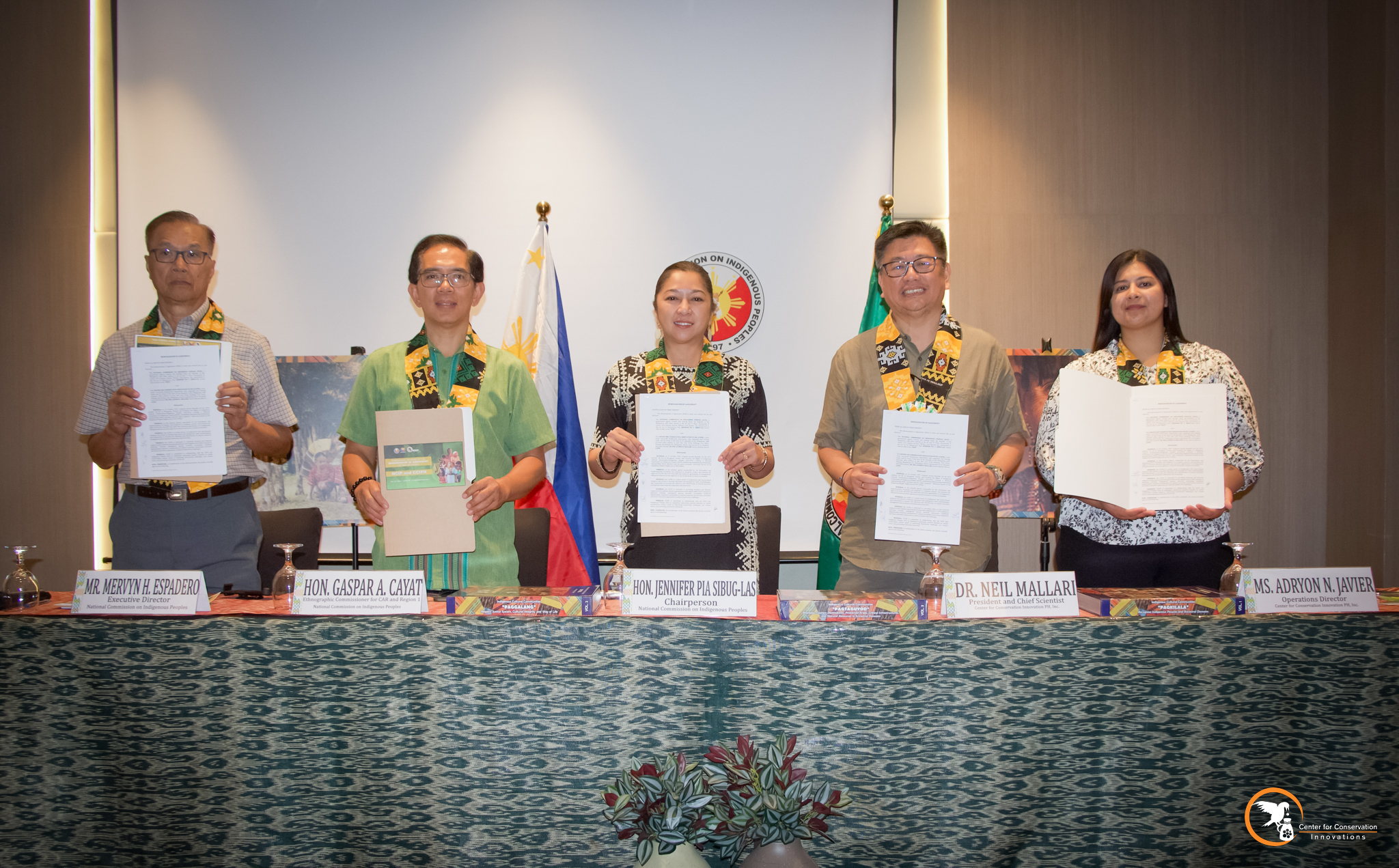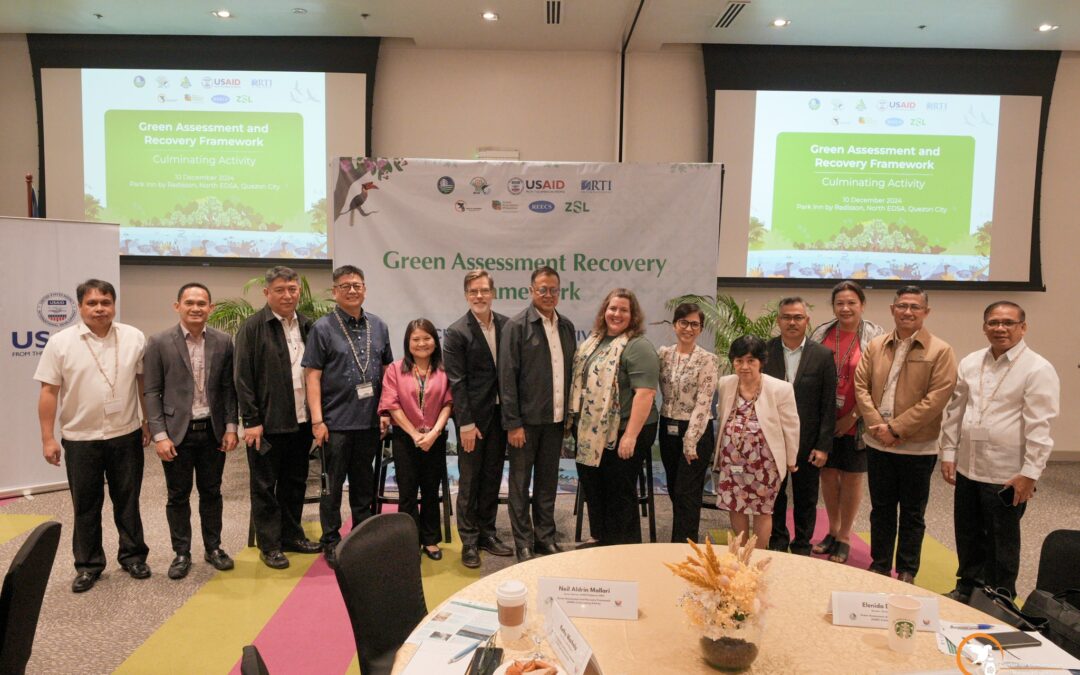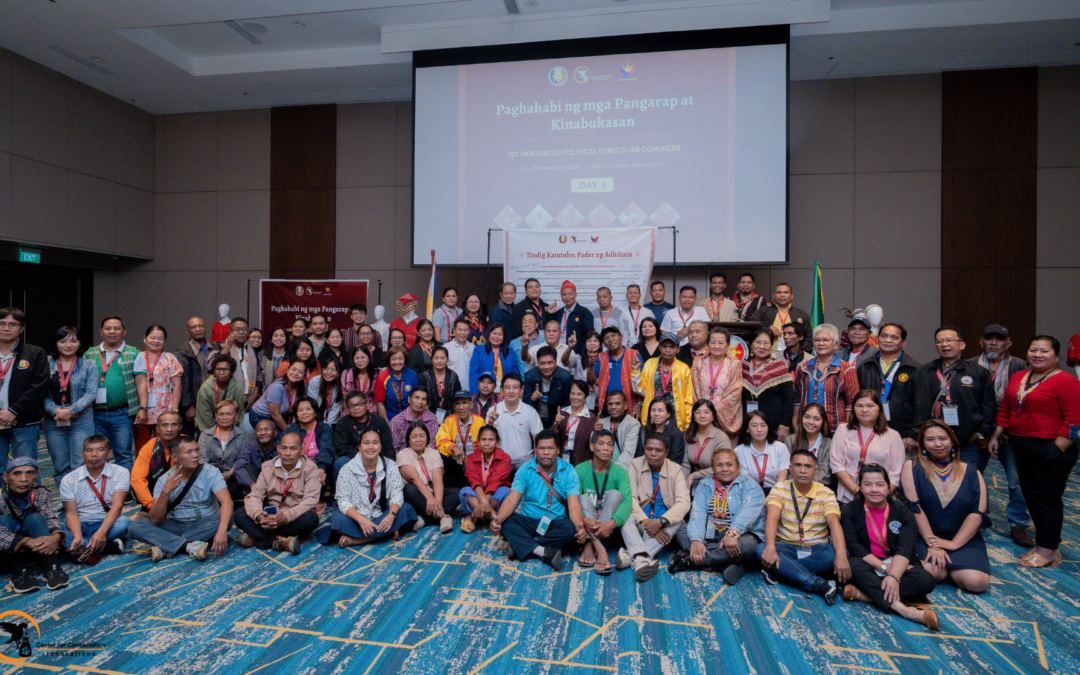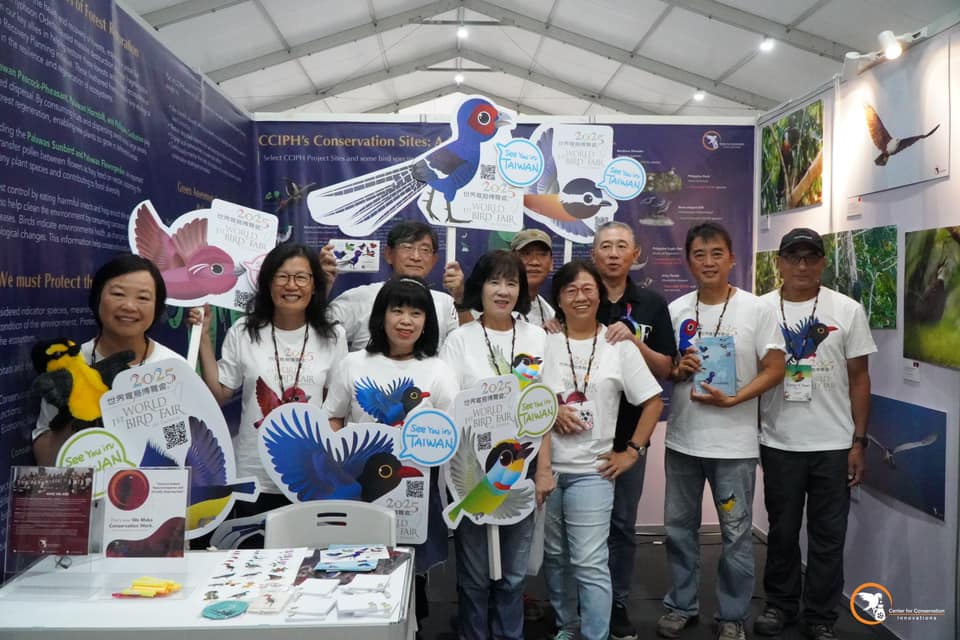The Center for Conservation Innovation PH Inc. (CCIPH) and the National Commission on Indigenous Peoples (NCIP) entered a Memorandum of Agreement (MOA) on July 12, 2024, at Citadines Hotel in Quezon City.
The Agreement was established to promote environmental conservation and support Indigenous Cultural Communities/Indigenous Peoples (ICCs/IPs) in developing innovative biodiversity conservation methods and sustainable livelihoods in Ancestral Domains. The agreement includes capacity development to equip duty-bearers and community partners with the latest techniques for addressing biodiversity and climate challenges, fostering community inclusivity, and conserving natural resources in Ancestral Domains.
CCIPH Chief Scientist and President, Dr. Neil Aldrin Mallari, stated that the CCIPH is deeply honored and proud to highlight that the MOA serves as a critical mechanism to support and collaborate with Indigenous Cultural Communities and Indigenous Peoples (ICCs and IPs) in defending and safeguarding biodiversity. He emphasized the importance of this agreement in addressing the urgent needs of these communities in the prevailing biodiversity crisis. Dr. Mallari also addressed the significance of taking comprehensive actions to ensure the survival and well-being of both the environment and the ICCs and IPs, emphasizing that now is the time for decisive and collective efforts to protect our natural heritage.
CCIPH Operations Director, Adryon Rozz Javier, meanwhile, emphasized the vital role of agency collaboration in effective conservation efforts. She said that the combined efforts of CCIPH and NCIP are pivotal for advancing indigenous-led conservation initiatives as integrating indigenous and modern knowledge enhances sustainable, knowledge-based conservation endeavors.
“The role of CCIPH in this initiative is to provide science-based initiatives, facilitate accessible conservation practices, reinforce evidence-based approaches, and ensure the country’s environmental sustainability for the welfare of its people through knowledge sharing and expertise exchange remains a core objective for these agencies,” she affirmed.
The MOA includes enhancing capacity through training and workshops on the latest conservation techniques and technologies, facilitating knowledge exchange between traditional wisdom and scientific insights to innovate conservation practices. It also involves supporting community-led projects with funding and logistical assistance to ensure their success, advocating for Indigenous rights through protective policies for their lands, and establishing monitoring systems to evaluate and adjust conservation efforts based on data-driven insights.
By joining forces, CCIPH and NCIP aim to empower indigenous communities by equipping them with tools, resources, and scientific support to lead conservation efforts in their ancestral domains. By integrating traditional knowledge with modern scientific approaches, the goal is to develop sustainable and effective conservation strategies that honor indigenous heritage and protect biodiversity, ensuring environmental sustainability for the welfare of the people. More importantly, this partnership will ensure that Indigenous peoples communities receive the necessary guidance and support to exercise their priority rights over their lands and resources.




